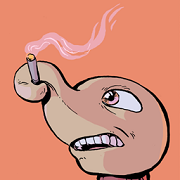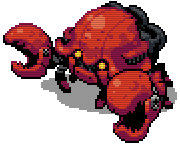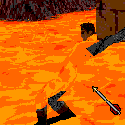|
So everyone came to dinner in changed clothes, thus hiding any evidence of blood on their clothing and yet the dirty clothes haven't been searched for blood yet? Tsk!Hyper Crab Tank posted:See, that door is what I can't fit in there. It's clearly not in the corner next to the other door, as we can see the corner in one of the photos. If it's further up on that wall, then it's behind the sofa, which is pushed right up against the wall, rendering it inaccessible. Alternately, we can assume the desk is against some wall other than the one facing out the ship, but then that means the drawing room has two windows/portholes, and one of them is facing either into one of the bedrooms or into the corridor, which makes no sense either. I'm trying to figure out which way Blane would have been standing when he was killed. The spot of blood is by what Kettering calls the "table end", but since he consistently uses the word "writing table" rather than "desk" (I suppose that was more common in 1936), I'm still not sure where the blood was. He says the table end of the foot tracks, so I am guessing right on the floor in the middle of the table where the tracks start. If you look at the pic of the bedroom, the path to the toilet is blocked by a chair so it wouldn't surprise me if the drawing room to bedroom door was in the middle of the wall behind the sofa. I don't think it's right up against the wall, in the view of the window the sofa is kind of angled. I went and looked at the mirror on the dressing table in the bedroom, but alas, no reflection of the position of the door. I'd like to assume the photographer is standing in the doorway when snapping the bedroom though. Anyway, do we now have a murder weapon? In fiction a silencer could explain why the steward heard nothing and why whoever was killed in Blane's room did not have a scuffle. The blood splash on the curtain is consistent with someone being shot from behind and to the right and having the bullet go diagonally to the front left. Thanks for transcribing that letter to the bishop, firstly I wonder who told Blane the bishop would be there, and secondly "special connection good friendship" makes me think that they are both Freemasons. That is a pretty good reason by itself for the bishop to stay quiet.
|
|
|
|

|
| # ? May 3, 2024 10:05 |
|
So the letter contradicts Hayashi's testimony and also implicates Rocksavage's, although Rocksavage may not have been in the loop on Blane's letter. It also confirms that Blane had something up his sleeves as implied in the bishop letter.
|
|
|
|
That's as interesting to read as a document of historical fashion as it is a statement of evidence. Back to the room layout : Stodart's cabin is clearly not laid out according to the plan shown, since it shows the bed to the left of a door. Maybe it's just a minor detail in the construction (clearly the same set was used for Blane's room, just dressed differently), or it's actually indicating that his room communicated with Blane's drawing room. But you'd think that would have been mentioned. We also know it's not a flipped negative because of the stickers on the luggage. Those may also be clues ... I can make out Italia, Cunard, New York, Savoy Hotel, and Marseille.
|
|
|
|
The floor plan is kind of strange... I assume Stodart's cabin is supposed to not connect to Blane's drawing room because it's marked with a different letter on the deck plan. On the other hand, that means he doesn't have a bathroom, or at least doesn't have his own; between cabins J and H, and between I and G, there are bathrooms that are not marked with a letter. Is there anything interesting in the long inventory list? Nothing in particular about Blane's stuff sticks out to me.
|
|
|
|
Stodart seems even more suspicious to me because he's got an alibi for the entire period under consideration, including having the stock note delivered by a steward (who was otherwise occupied serving drinks) instead of going down himself. The new note from Blane looks like it matches the handwriting on the other two notes (as much as I wanted to find enough differences to conclude that it didn't), but nothing says Blane's the one who wrote that, either. Another thought I had is that Blane's note isn't a suicide note after all, but a mere concession that Rocksavage has him over a barrel. That last part that we haven't deciphered through the handwriting could just as well be "giving up" as "going out", and while everyone's interpreted that as an intention to commit suicide based on the initial appearance of such having happened, it might also just mean that he planned to accept Rocksavage's terms, whatever they might be, and stop trying to jockey into a good position for himself. Likewise, "the game is up" on the other note could just mean that his prediction of failure has come to pass. Stodart's job would likely be on the chopping block in that case, whereas if Blane turns up dead, he could stand to be promoted to some prominence in the company and might have a plan up his sleeve to recover something from the mess that the stocks have left it in. Stodart might well have taken that note, left atop the paper with the latest stock report for him to find at his convenience while Blane was elsewhere, and written the newest stock report on the other side to have the steward deliver it to the room, knowing full well that Blane couldn't answer the door because he was already dead. Most tellingly, look at the Argus stock report numbers - the period STARTED with them below 40. They fell below 40 before Stodart wrote those figures! So why would Blane write that note on the back of that report?
|
|
|
|
Blane has come from the UK by boat, to NY, chickened out, then caught a plane to Miami to catch up, correct? In between NY and Miami it would have taken the Golden Gull a while to get there so was Blane standing around doing nothing in between times? The stocks falling and hitting under 40 should not have been a surprise at all.
|
|
|
|
Here's another thought: What if the message on the back of the notepad page was meant for Hayashi? Clearly the two had been communicating, and furthermore Blane had received the postcard and presumably read it. It would explain why he made the effort to write two separate messages regarding the stocks dropping.
|
|
|
|
Stoca Zola posted:Blane has come from the UK by boat, to NY, chickened out, then caught a plane to Miami to catch up, correct? In between NY and Miami it would have taken the Golden Gull a while to get there so was Blane standing around doing nothing in between times? The stocks falling and hitting under 40 should not have been a surprise at all. Oh snap, good call. I was thinking it would not have been feasible for him to catch a plane after the market closed to meet the ship at Miami, but I didn't realize that there was a whole day in between. Blane could have easily been in Miami a day ahead of the yacht and had plenty of time to catch up on the day's market action well before he embarked.
|
|
|
|
Blane arrived in New York on March 5th, chickened out, and the yacht left without him. He changed his mind a few hours later according to Stodart. The ship sailed from Miami on March 8th, so there are three whole days in between where lord knows what happened. Note also that while in New York, Blane sent a letter to Hayashi, concering some unknown issue, that distressed the latter. The letter to the bishop is likewise marked March 5th and written on a New York hotel stationery. In that letter, Blane shows none of the hesitation Stodart claims.
|
|
|
|
I knew Stodart was full of poo poo! He thinks he can say what he likes about Blane and no one will be the wiser, so perhaps he does not know that Blane sent these letters. That's assuming it's not Blane disguised as Stodart desperately trying to maintain the pretence that he has committed suicide. Hayashi's letter does mention consequences so maybe he is aware of some danger too.
|
|
|
|
Sorry to double post but this is kind of a different topic, I don't know whether we should be looking for all these sneaky switcheroos or if we should be taking all the evidence at face value. How early was this written in the history of crime writing? Were all the sneaky trick-the-reader type tropes established or did they come after?
|
|
|
|
Stoca Zola posted:Sorry to double post but this is kind of a different topic, I don't know whether we should be looking for all these sneaky switcheroos or if we should be taking all the evidence at face value. How early was this written in the history of crime writing? Were all the sneaky trick-the-reader type tropes established or did they come after? I'm not a huge mystery reader but many classic mysteries with iconic twists were on the scene by the time this was published.
|
|
|
|
Absolutely. This was released near the tail end of the golden age of detective fiction, namely the 20s and 30s. Agatha Christie was at the top of her career, for instance, having written Murder on the Orient Express only five years earlier, and And Then There Were None would come out just a few months after Murder Off Miami came out. As such many of the common tropes and twists are firmly established by this point, so I wouldn't put it past the authors to pull the switcheroo here.
|
|
|
|
I've read a stack of Agatha Christie and a few others and had an inkling it was all pre ww2 but wasn't sure how long the golden age stretched for, also I'm tired and lazy. But I'm glad our theories aren't too crazy because this is a lot of fun.
|
|
|
|
Just wanted to say after sleeping on it, I think they brought the Italian on board knowing his criminal background to use as a fall guy. The gun could have been planted, who leaves a silencer attached after the job is done?
|
|
|
|
If that's the case, then that means Mr. Jocelyn is in on it since he's the only one who knew him beforehand. Does that, in turn, implicate Lady Welter? Or would Rocksavage be working with Jocelyn? Too early to tell. It should be noted that Blane also had a handgun in his luggage, though it was unloaded (not that that means anything... Kettering didn't remark on whether it had been fired or not). The vibe I'm getting from the Count is that he's a cardshark and general huckster, which in combination with his remarkably American accent and demeanor would suggest to me that he's not actually a Count and probably not actually Italian.
|
|
|
|
I've talked this puzzle over with a friend and one idea that he came up with is that it was "Stodart" who did the deed, and did it early since the rest of the time he has an alibi with everyone else. Another thing he pointed out was that he and the bishop had something in common during the war, it wasn't just that they'd met at the hotel once, like I initially remembered. So what could he have been hinting at? Can't wait for the follow up Q&A if there is one.
|
|
|
|
Stoca Zola posted:Another thing he pointed out was that he and the bishop had something in common during the war, it wasn't just that they'd met at the hotel once, like I initially remembered. So what could he have been hinting at? Can't wait for the follow up Q&A if there is one. That's a good point. Somehow I had conflated "seven years ago" with "during the war", but that's obviously wrong - this takes place in 1936 and the first world war ended in 1918. Then again, the bishop is evidently lying about his connection to Blane in the first place, so lying about when exactly they met is probably just a small part of that lie. I kind of liked your suggestion that they're both freemasons or something of the like, but there's no actual evidence suggesting it, so it's not something I'd go for right now. What other options are there? Were they both in the military, perhaps? One-time lovers sounds a bit too spicy for something written in the 30s, and with a (presumably Catholic) bishop no less. Whatever it was, it was more than just chancing to share a few interests... it was enough to create an impression lasting almost 20 years.
|
|
|
|
Update 5. Pages 59 to 70. Eating Solids. : Welcome back. It's infodump time! : Welcome back. It's infodump time!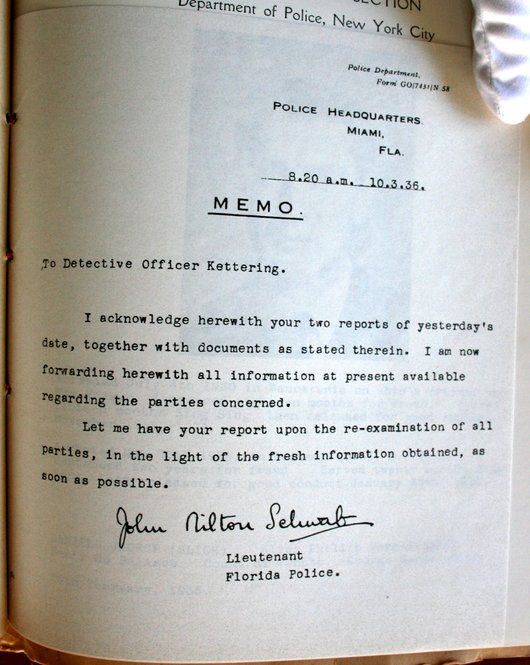 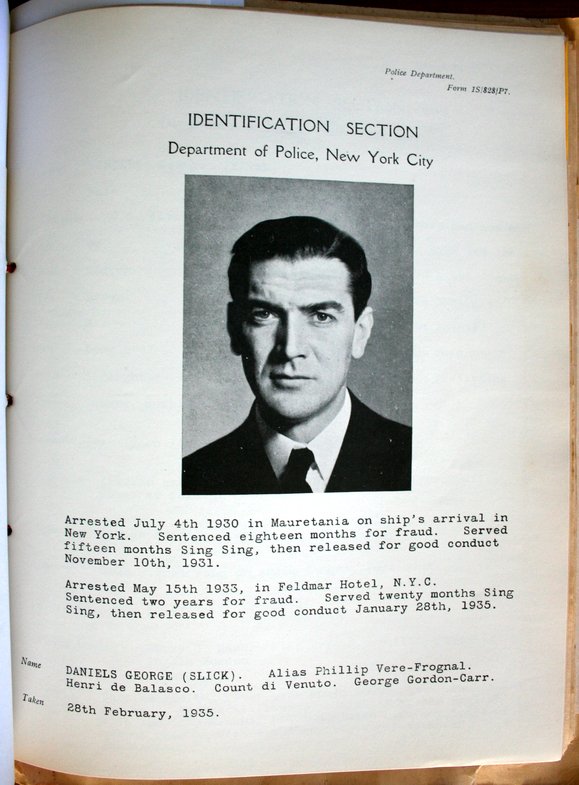 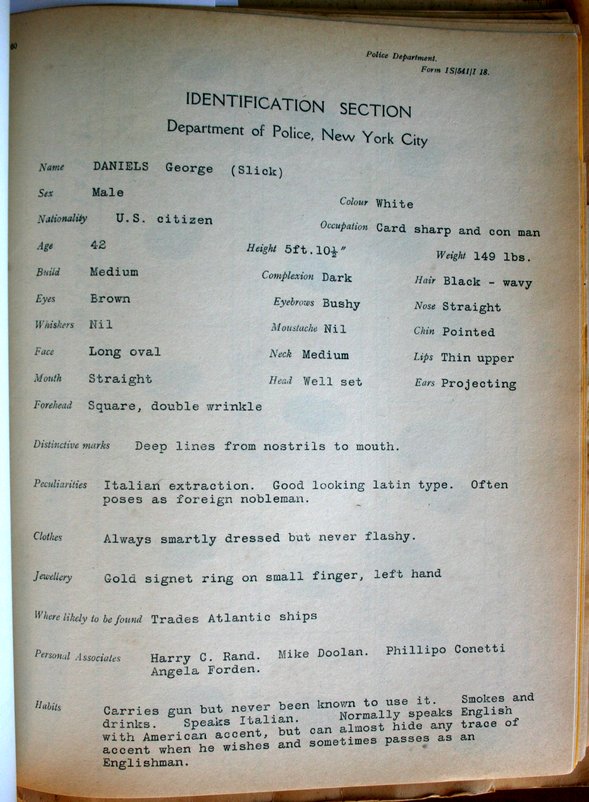  : A cat hair moustache user. Why does an American file specify an American accent but not a British one? : A cat hair moustache user. Why does an American file specify an American accent but not a British one?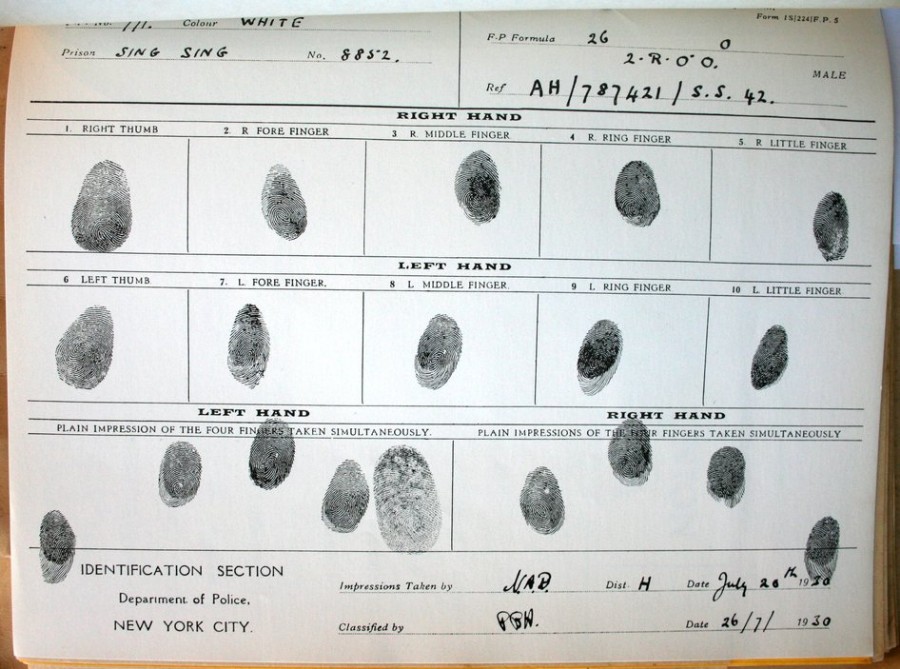  : I don't think we'll be using this, but I'll take a fancier shot anyway. : I don't think we'll be using this, but I'll take a fancier shot anyway.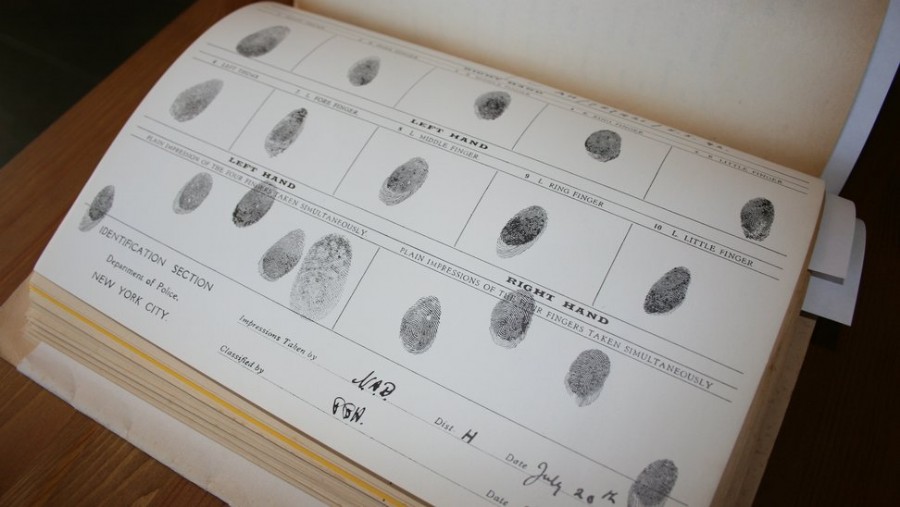  : Nice. Now for the real infodump. : Nice. Now for the real infodump.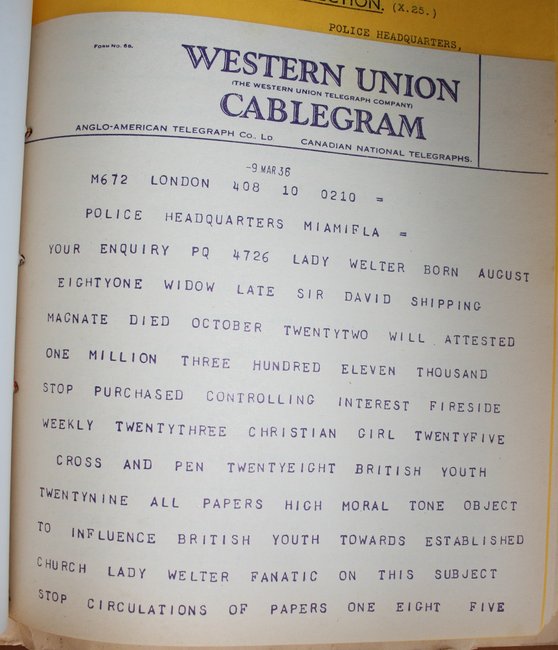 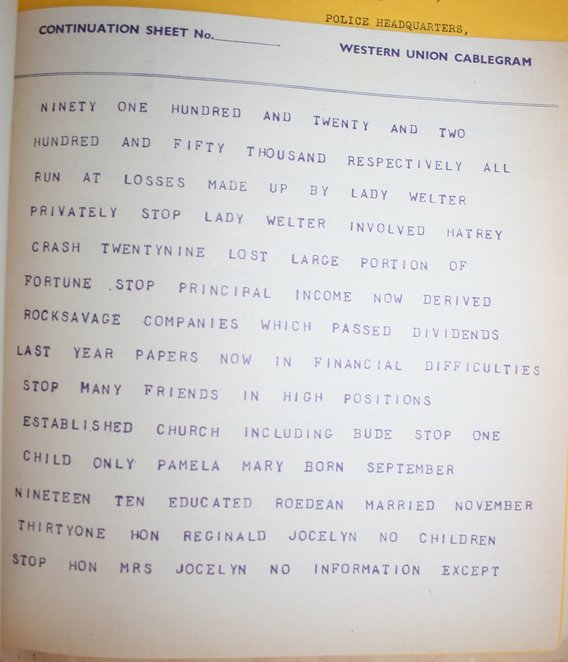 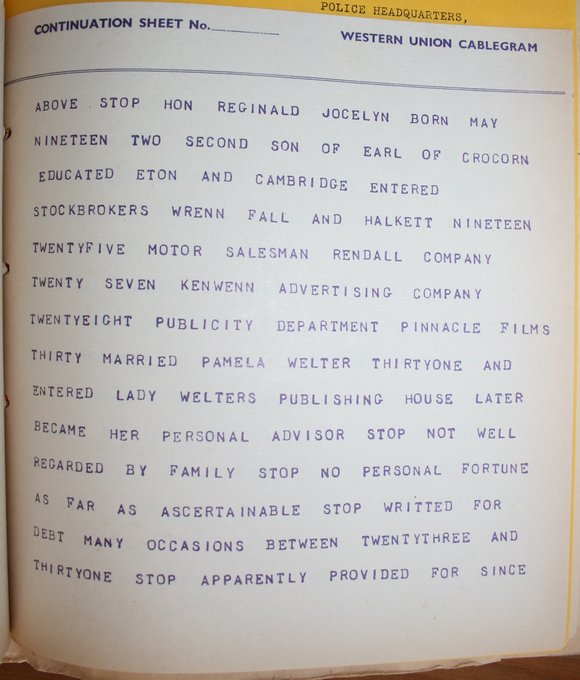 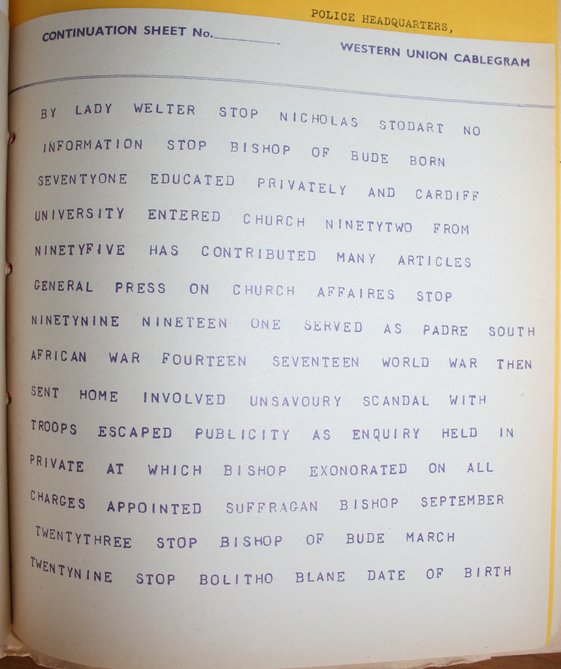 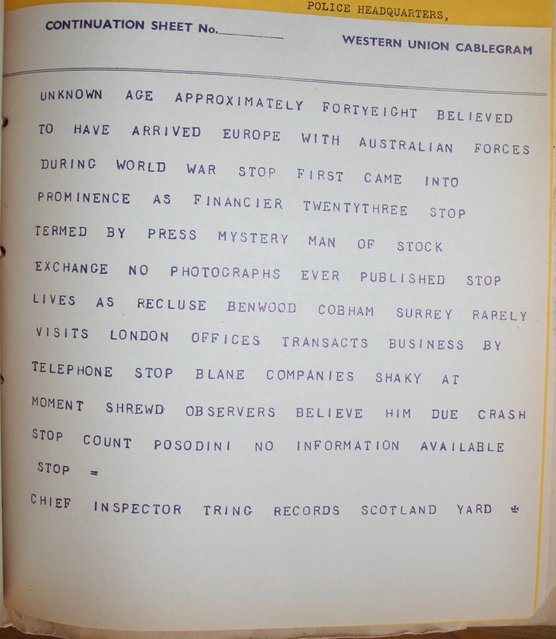  : Going by the official records Bolitho Blane might as well have been a kangaroo. : Going by the official records Bolitho Blane might as well have been a kangaroo.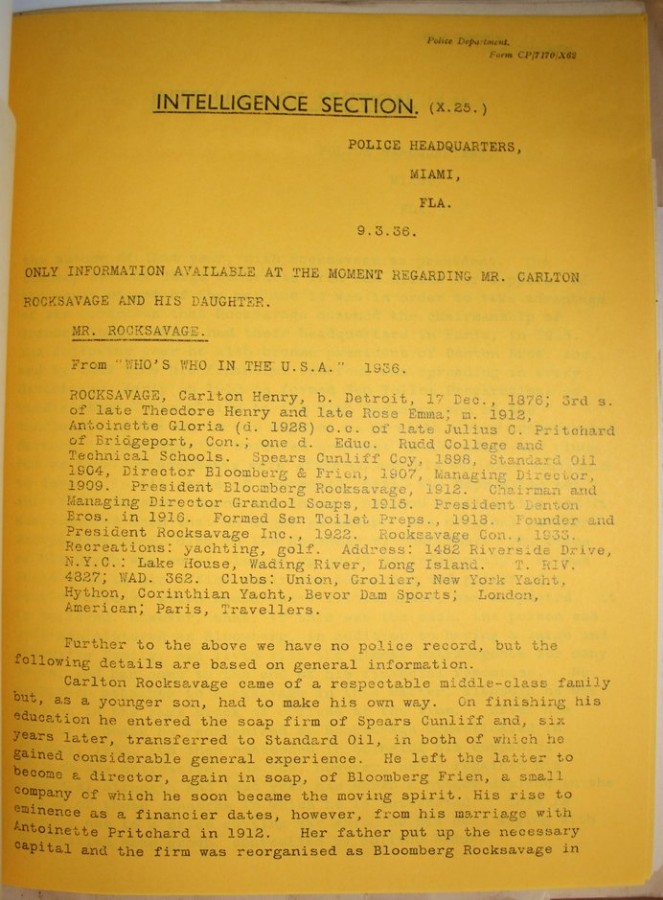 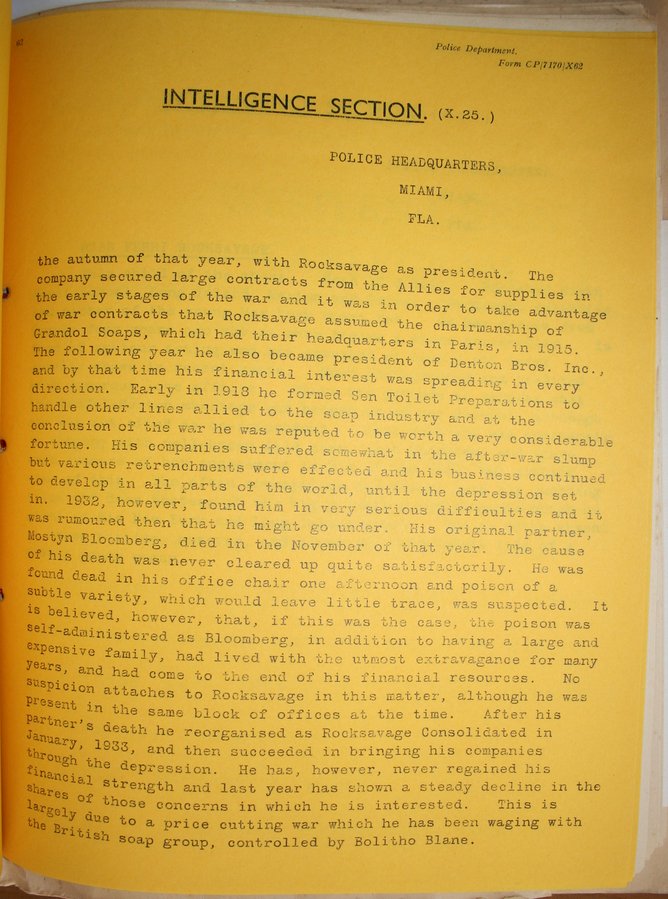  : Or course Rocksavage's original business partner died under strange circumstances. : Or course Rocksavage's original business partner died under strange circumstances.  : I don't see a source of income here. : I don't see a source of income here.  : Mr. Hayashi is exactly who he claims to be. How peculiar. : Mr. Hayashi is exactly who he claims to be. How peculiar.DETECTIVE OFFICER KETTERING'S FOURTH REPORT. I have to acknowledge your memo. of to-day's date, together with cabled report from Scotland Yard upon Mr. Blane, the Bishop of Bude, Lady Welter, and Mr. and Mrs. Jocelyn ; also about Mr. Hayashi from the Japanese police; the identification particulars of George ("Slick") Daniels, alias Count Posodini; and the information supplied by you about Mr. and Miss Rocksavage. Last night I decided that it would be a good thing to have a talk with Nicholas Stodart in order to find out from him as many particulars as possible about Blane's life and affairs. I therefore suggested that he should join me for dinner as all my meals are served separately in the small writing room in which I am conducting my examinations. He agreed readily enough, but the meal did not prove a particularly happy one as Stodart has a small abscess and, on account of this, is suffering somewhat with his false teeth, which give him pain when eating solids. He is also very distressed by his employer's death which leaves him without a situation, and I gather, very little money. He talked quite freely, however, and the following is such information as I gleaned from his interview.  : This is going to be a long one. : This is going to be a long one.PARTICULARS GATHERED FROM A TALK WITH BLANE'S SECRETARY, NICHOLAS STODART. Blane was a generous, but difficult, employer. The work which he demanded of his secretary was light but, on the other hand, he liked to have him at his beck and call the whole time, and part of the understanding on Stodart's engagement was that, except in very special circumstances, he would not be allowed any free time off duty. This suited Stodart as he is quite alone in the world and has ho relatives or friends whom he wished to visit. His history is as follows: - He is 46 years of age and was born at Felixstowe, Suffolk, England. His mother died at the time of his birth and his father was employed in the Indian Forestry Department. During his early childhood Stodart lived with a maiden aunt, the sole surviving member of his mother's family, to whom she had come home when she was about to have her baby. The aunt was killed in a railway accident, however, when Stodart was eight years of age, and so he was sent to a boarding school in Felixstowe and he never saw his father, except during four periods of leave at intervals of several years, until he was sixteen, when he left school and went out to live with his father in India. For the next few years he studied accountancy and, having served an apprenticeship with Messrs. Wayne, Robins & Co., of Calcutta, he succeeded in obtaining a position with the Ranaga Rubber Company. His duties with this company entailed visits to numerous rubber plantations owned by the company, where he spent anything from a week to a fortnight inspecting the accounts on the spot twice yearly, and then moved on to another station. His friends, therefore consisted solely of planters that he visited twice yearly, since he was never able to settle down for any lengthy period in one place and create a permanent circle of friends. He enlisted in 1914, but was not sent home, being drafted as one of the reserves to the India Frontier Force, and thus spent the whole of his war service in northern India. His father died in 1917 and Stodart was disappointed to find that his father left practically nothing. He had always assumed that, as his father could spend very little in his isolated forest station he must be saving a good portion of his salary, but on Stodart's senior's death, it was found that he was an inveterate gambler and had invested all his savings in various companies which held out prospects of enormous dividends from oil, gold, etc., but proved to be worthless concerns. His father's death did not improve Stodart's position, therefore, and he was not able to save very much out of his moderate salary. He received promotion in his firm from time to time but never rose higher in it than deputy accountant at a salary of £600 a year. Then he suffered a big set back because his firm went under in 1931, owing to world depression, so he found himself out of a job at the age of 41. He remained in India for a further two years, partly living on his savings and partly by temporary work which he managed to obtain with one or two firms in rush periods. Early in 1934 he decided that the prospects of earning his living in India were becoming more and more hazardous and so he decided to return to his mother country. There, however, he did not meet with any better fortune as there were few openings for men of his age and scope. Until early this year he managed to support himself by taking various temporary clerical posts, but he had practically exhausted his savings, and was in a pretty bad way, when he noticed an advertisement in a local paper. The advertiser offered a permanent post with good remuneration to a man free of all responsibilities, who was prepared to travel if necessary, Qualifications demanded were that the applicant should be under fifty, but have had at least twenty years' experience in a secretarial post, or as an executive in a business office. Public school education not essential but must possess decent manners and appearance. The advertisement appeared in the East Anglian Times and applicants were asked to apply to a Mr. Benwood at the While Horse Hotel, Ipswich. Stodart was staying in the town at the time, so he called and managed to secure a job. Having taken him on, Benwood explained that his real name was Bolitho Blane but he had not advertised under his real name in order to avoid unnecessary publicity. He took Stodart off the next day to his home at Cobham in Surrey. For the next fortnight Stodart acted as Blane's Secretary but his duties were very light as Blane did nearly all his business over the wire, and never went to London. Stodart, in fact, was never even called on to visit the London officers of Blane's companies, nor did he meet any of Blane's executives as, during this period, none of them came down to see him. In the latter part of February Blane informed Stodart that they would shortly be leaving for the United States and explained the reason for his decision to make the trip. By that time Stodart, of course, had acquired a certain knowledge of Blane's situation and his financial position, so he was competent to undertake the secretarial work which Blane gave him on the voyage over. Stodart says himself that it seemed queer Blane should take on a complete stranger for this job of secretary with very little knowledge about him, but he thinks that Blane already had the American trip in mind when he engaged him and was anxious to have somebody with him who was capable of doing the odd jobs in connection with his journey and, at the same time, competent to take accurate notes of his conference with Rocksavage, yet someone completely outside his business, so that there could not possibly be any leakage of information about what occurred at the conference to any of his other employees in his London office.  : The paragraph above is a single sentence. : The paragraph above is a single sentence.DETECTIVE OFFICER KETTERING'S FOURTH REPORT, CONTINUED. This morning, immediately I received the outside information upon various members of the party I proceeded to a new analysis of the situation and composed a fresh draft of possible motives. POSSIBLE MOTIVES. 10.3.36. Mrs. Jocelyn. Nil, as far as is known at the moment. Count Posodini. Nil, as far as is known at the moment, but the Count is now identified as the ex-convict "Slick" Daniels, so I hope to be able to make him talk, as there must be some special reason for Reginald Jocelyn having asked him on board, when he was quite unknown to any other member of the party. Mr. Rocksavage. Strong motive to do away with Blane, as pointed out in previous analysis. This becoming even stronger on confirmation of the precarious situation of his companies. The Bishop of Bude. Nil, as far as is known at the moment, but his possession of a letter from Blane mailed from New York on the 5th shows his acquaintance with the murdered man to be far stronger than he would have us believe in his first statement. This letter lays such stress upon the friendship existing between the two that it reads to me much more like a threat by Blane that, whatever might occur in the yacht, the Bishop had better keep his mouth shut. This is supported by the suggestion in the cable from Scotland Yard that there was some unpleasant scandal in which the Bishop was involved in 1917. Lady Welter. Motive in her case, which was weak in our first analysis, is considerably strengthened by the cable from Scotland Yard, in which it appears that she has been expending a portion of her fortune for numerous years in supporting a non-commercial group of papers. Further, that she lost a considerable portion of her capital in the Hatry crash, and is now principally dependent upon her holdings in the Rocksavage companies. Mr. Hayashi. Nil, as far as is known at the moment, but the fact that he wrote to Blane, asking for an appointment, brings him much more strongly under suspicion. If it can be proved that he visited Blane's cabin between 7.45 and 8.15, when he appeared in the lounge, it will look very much as though he is our man. Mr. Jocelyn. As dependent of Lady Welter his motive is considerably strengthened by the facts about her financial situation which have now emerged. From the report of his activities previous to his marriage with Lady Welter's daughter it is obvious that he is something of an adventurer and, since he was frequently writted, probably unscrupulous where money is concerned. Moreover, he is responsible for having introduced in to the party a known criminal, "Slick" Daniels, alias Count Posodini. Miss Rocksavage. Nil, as far as is known at the moment. I then proceeded to re-examine the whole party.  : Yes, he did. Next time we'll have a lovely chat with the Count and one or two Jocelyns. : Yes, he did. Next time we'll have a lovely chat with the Count and one or two Jocelyns.
|
|
|
|
All right, it looks like my assessment of the ostensible Count was correct. A conman indeed, and neither Italian nor nobility. Kettering seems to believe Mr. Jocelyn was aware of the fact, and if he was, it does implicate him somewhat, or at least make it sound like he had some secret purpose in inviting him on board. On the other hand, Jocelyn may well have been taken in by the disguise and not questioned it further, although then one was to wonder why he would so readily invite the man on the cruise. For the moment I don't think he's actually done anything in this particular case, though, or at least there's no evidence to suggest it. With the allusions to a scandal involving the bishop during the war, the letter does potentially take on a slightly different tone. The possibility of the two being former lovers is suddenly more likely. However, even more likely is the suggestion that Blane has intimate, perhaps first-hand knowledge of the scandal in question, and the letter intended to intimidate the bishop into silence. It also explains why the bishop lied about their connection; if they'd just been friends, he could've just said so since it's not very suspicious, but if their real connection is that of blackmailer and victim, the bishop has all the more reason to conceal as much as possible about their connection. Lady Welter has a motive now, and by proxy Mr. Jocelyn. Hayashi is as clean as ever, although it wouldn't surprise me if he turned out to be Japanese intelligence or something in the end. How very convenient that there are no photos of Mr. Blane, nor anyone alive who seems to know him, nor any family to speak of. The same goes for the man calling himself Stodart; which of course neatly tucks away several loose ends relating to a potential switcheroo. If there's no family to go back to, and if Blane was shrouded in mystery already, then there's no one to wise onto the switch after the fact. Still, Stodart gives quite an elaborate backstory for himself, and at the same time, intelligence has no information on him. It could just be because he's insignificant enough not to register on the police's radar, but I'd like to at least entertain the possibility that there never was a Nicholas Stodart in the first place.
|
|
|
|
Hyper Crab Tank posted:How very convenient that there are no photos of Mr. Blane, nor anyone alive who seems to know him, nor any family to speak of. The same goes for the man calling himself Stodart; which of course neatly tucks away several loose ends relating to a potential switcheroo. If there's no family to go back to, and if Blane was shrouded in mystery already, then there's no one to wise onto the switch after the fact. Still, Stodart gives quite an elaborate backstory for himself, and at the same time, intelligence has no information on him. It could just be because he's insignificant enough not to register on the police's radar, but I'd like to at least entertain the possibility that there never was a Nicholas Stodart in the first place. To add on to this, the fact that Blane seemed to keep Stodart from seeing any of the executives of his company and didnt take him to his London offices or anything makes me believe that Blane was grooming Stodart to switch places with him. I wonder if there is anything to the fact he has false teeth though. Maybe to change the shape of his face, blaming an abscess for the discomfort? Could help make him less recognisable perhaps.
|
|
|
|
Blane's age is approximately 48, and according to Stodart he was looking for a secretary no older than 50. Alright then.Hyper Crab Tank posted:I'd like to at least entertain the possibility that there never was a Nicholas Stodart in the first place. Do you mean Stodart is a made-up identity for a real person who isn't Blane or that he was never in the ship? Because somebody entered the ship with Blane, according to Lady Welter and the Bishop. I wouldn't be too surprised if nobody actually died during the trip and "Stodart" is Blane, but it seems we're still missing a person.
|
|
|
|
tiistai posted:Do you mean Stodart is a made-up identity for a real person who isn't Blane or that he was never in the ship? Because somebody entered the ship with Blane, according to Lady Welter and the Bishop. I wouldn't be too surprised if nobody actually died during the trip and "Stodart" is Blane, but it seems we're still missing a person. Made-up identity. The person who accompanied Blane could be an accomplice currently hiding in the lower decks or something to that effect, but whose name is not Nicholas Stodart, because that's a fictive identity invented for the purpose of the switcheroo. The thing is, it's just so convenient that Blane would just happen to come upon the perfect person, of the right age, with no friends or family who would give the game up after the fact, who's in dire need of money and with just the right skill set to be plausibly hired as a secretary, a mere two weeks before the yacht trip. I think we all agree the circumstances of Stodart's hiring as presented are pretty fishy, but if we are to accept it on face value then Blane got supremely lucky. Of course, if the man calling himself Stodart now is indeed Blane, then anything he says is not to be trusted, and the entire backstory he gives Kettering could be fabricated. Or it could be true, except it happened to the real Stodart, who is lord knows where now (dead, in hiding, etc.). But then it raises the question of why Blane would even bother to find a desperate loner with an equally lonesome backstory to steal in the first place, especially since the backstory is almost completely impossible to verify anyway. It would be far easier to simply fabricate a suitable backstory for an entirely fictional man, and then get some other accomplice to board the ship along with him to keep the illusion up. e: There's still a big issue I can't square with the switch theory: The bishop spent time in the longue with Mr. Rocksavage and a man he, and Lady Welter, refer to as "Mr. Stodart" or "Mr. Blane's secretary". Now, the bishop would recognize the man as Blane, so why did he call him Stodart? It's possible he kept silent because he feared being blackmailed, but this doesn't fit with the suggestion that the bishop fainting is because he was shocked to see Blane alive. If he had seen Blane (as Stodart) alive in the longue, there would be no reason for him to think Blane was actually dead and thus no reason to be shocked into fainting. e2: Another thing occurred to me earlier. The blood sample clipped from the curtain. Both the one from the original 1936 edition and the one from the re-released edition are quite unnaturally shaped. The original one looks painted on, and the latter is just a big perfectly circular splotch. Neither of those shapes are likely to occur as a result of a bloody wound rubbing against a curtain. The thing is, this suddenly becomes a meta-consideration: is the shape of the blood smudges significant, or is it just a case of "this is the best the authors were able to produce for the dossier"? If it actually is significant, it could be a hint that the culprit intended all along for the suicide to be revealed as a murder, perhaps in order to frame someone, and manually applied the blood to the curtain for this purpose. Hyper Crab Tank fucked around with this message at 20:49 on Oct 1, 2015 |
|
|
|
Hyper Crab Tank posted:e: There's still a big issue I can't square with the switch theory: The bishop spent time in the longue with Mr. Rocksavage and a man he, and Lady Welter, refer to as "Mr. Stodart" or "Mr. Blane's secretary". Now, the bishop would recognize the man as Blane, so why did he call him Stodart? It's possible he kept silent because he feared being blackmailed, but this doesn't fit with the suggestion that the bishop fainting is because he was shocked to see Blane alive. If he had seen Blane (as Stodart) alive in the longue, there would be no reason for him to think Blane was actually dead and thus no reason to be shocked into fainting. Stodart went down with the cabin steward after seeing the "suicide" note, and as I understand it, the other guests weren't made aware of Blane's condition (which was reported to some as merely being ill, while others seem to have understood that he was dead) until some time later. It's possible that the bishop thought the Blane who had been posing as his own secretary (for whatever reason) was dead, and was thus surprised to see him alive. Or maybe Blane and Stodart look very similar and something about Stodart's appearance when he entered the room made the bishop think he was Blane at first. Nobody's offered a description of Blane, and very few people on the ship seem to have seen him at all. If "Stodart" is Blane disguised well enough to fool the bishop, he might have thought he wouldn't need his full disguise to answer police questions, and walked into the room identifiable as Blane only to someone who knew him previously, while anyone else seeing the same person would identify him as Stodart. Farfetched, but mysteries worth their price tag don't tend to have simple answers.
|
|
|
|
So, Blane fakes his own suicide while dropping clues that point to it being actually a murder, likely in order to make Rocksavage look like the culprit and causing his stocks to fall. Then what? He lives as Stodart working for Argus? I guess if that's the plan then it'll turn out before long that Blane has prepared a will that hands the ownership of the company to Stodart or something to that effect. I just don't know if it'd be dumb or hilarious if it turns out that the "real Stodart" was hiding in a closet somewhere this whole time.
|
|
|
|
Nidoking posted:Stodart went down with the cabin steward after seeing the "suicide" note, and as I understand it, the other guests weren't made aware of Blane's condition (which was reported to some as merely being ill, while others seem to have understood that he was dead) until some time later. It's possible that the bishop thought the Blane who had been posing as his own secretary (for whatever reason) was dead, and was thus surprised to see him alive. Or maybe Blane and Stodart look very similar and something about Stodart's appearance when he entered the room made the bishop think he was Blane at first. Nobody's offered a description of Blane, and very few people on the ship seem to have seen him at all. If "Stodart" is Blane disguised well enough to fool the bishop, he might have thought he wouldn't need his full disguise to answer police questions, and walked into the room identifiable as Blane only to someone who knew him previously, while anyone else seeing the same person would identify him as Stodart. Farfetched, but mysteries worth their price tag don't tend to have simple answers. Yeah, something like that is possible. The false teeth could be hinting at that. The guests talked to someone in the lounge prior to the discovery of the apparent suicide. There are only a few options as to who that could be: 1) The real Stodart, who we don't know what he looks like. 2) Blane posing as Stodart. 3) An unknown accomplice posing as Stodart (who may be fictional). I've been going through Blane's inventory trying to find something that would indicate a disguise being put together, but there's still nothing that really sticks out. It's mostly just clothes and a few toiletries. The only item I can't figure out what it's for is the bottle of gum tragacanth. Tragacanth is an emulsifier... it's used as an ingredient in other preparations. I don't know why someone would have a bottle of it in their luggage, but it's not like I can imagine a nefarious use for it either. e: tiistai posted:So, Blane fakes his own suicide while dropping clues that point to it being actually a murder, likely in order to make Rocksavage look like the culprit and causing his stocks to fall. One option that had occurred to me, although it's terribly convoluted: 1) Blane frames Rocksavage for his own murder. 2) Both stocks tank; Blane because he's dead, Rocksavage because he's going to jail. 3) Blane surreptitiously buys up all the stock in Rocksavage Conglomerates. 4) Blane "reappears" off the coast of Florida, acting disoriented and with a fresh head wound. Rocksavage is cleared of all wrongdoing... but by now, Blane already owns the majority stock in both companies and can guarantee Hayashi's contract, simultaneously eliminating his rival and making millions. Hyper Crab Tank fucked around with this message at 21:15 on Oct 1, 2015 |
|
|
|
SelenicMartian posted:
Stodart sounds less like a secretary and more like [a] batman! e: Willing to bet that the false teeth fit in with dental record identification of the body -- which suggests Blane actually killed Stodart. I'd also think Blane's plan could be just as simple as faking his death and starting over somewhere else just to avoid lawsuits & bankruptcy. He doesn't necessarily profit, he just avoids a scandal. Kangra fucked around with this message at 21:21 on Oct 1, 2015 |
|
|
|
If Blane just wants to quietly fake his own death, why plant blood on the carpet and curtain? Taking Rocksavage down with him? That just seems petty and risky for no good reason.
|
|
|
|
Hyper Crab Tank posted:The only item I can't figure out what it's for is the bottle of gum tragacanth. Tragacanth is an emulsifier... it's used as an ingredient in other preparations. I don't know why someone would have a bottle of it in their luggage, but it's not like I can imagine a nefarious use for it either. http://www.ehow.com/how_8501358_diy-glue-false-teeth.html Hahaha
|
|
|
|
Ahah, oh wow. I had just found a source indicating gum tragacanth can be used to polish leather (i.e. shoes), but if this is going in the direction of Blane having false teeth, then... yeah.
|
|
|
|
The most important thing about this "murder" so far to me is that there is no body which means no real proof that there was ever really two people. If I recall "Stodart" and "Blane" came across to the yacht on a tender, which would have returned to land after, possibly containing the extra person. No one would have looked. The yacht seems too small for a stowaway to stay hidden for too long as the staff would be making use of every space. It doesn't seem that plausible to me that Blane hired Stodart with the intention of killing him and switching places but "Stodart's" whole story was overly detailed and plausibly completely fake, but if so why include any detail to the detective about the weird conditions of his employment ie the age? No way would disguised Blane lie to the detectives face to the tune of "isn't it funny that he wanted to hire someone about the same age as himself" when saying nothing on that front would be safer. Unless he really did all these things but left the real Stodart behind. There would be confirmation of the ad in a newspaper if it was archived somewhere then, even if nothing else about Stodart is verifiable. Oh. His handwriting is very real and different to Blane's. Dammit. Now I don't know what to think. The information regarding the dodgy bishop just muddies things, since how would Blane know anything about what happened, unless he was there? The matter was kept private. Back in those days I imagine it would have been much harder to dig dirt on people and it is a huge coincidence if this person Blane knows something horrible about just happens to be the close personal friend of a major investor of the rival company, and they just happen to be on the same boat as this critical business deal. What if Blane has been putting pressure on his "friend" for years to try and get close to the competitor for whatever advantage? How's this for an unrelated theory, Ferri and Jocelyn are known to have spent a lot of time together, so maybe Ferri is trying to break up a marriage again, while Mrs Jocelyn spends time with the bishop (possibly discussing her troubles with an old family friend? Or oblivious?). The fake count might have invited himself thinking to play some cards with the gentlemen of the yacht and win money not realising that they are largely all going bust. Or here's an idea, the bishop wanted to get rid of Blane and arranged for his friend the fake count to "meet" Jocelyn and get invited on the trip, and then between them they planned to shoot Blane and dispose of him. The count doesn't know him but shoots and disposes of the wrong guy, which is why the bishop later faints. I know from the Father Brown stories that religious types often come across and get to know criminal types. Ah poo poo I forgot the bishop was there when fake Stodart was in the lounge. If old Mrs major investor (her name escapes me and I am phone posting) was moral enough to waste heaps of money publishing magazines encouraging the moral behaviour of young people, I hardly think she's going to get involved in something vile and sinful like a murder. Or if she is a real fanatic though, perhaps she is convinced it is necessary to take that sin on herself so that she can afford to keep reaching out to many young people. She didn't come across that way in the interview though. Ok so maybe the disguise thing holds water, tragacanth paste is used in making things like cake decorations, it could have been used to make his nose look bigger or other disguise type things. It also has a reputation for making hair grow back. Was Blane balding?
|
|
|
|
You guys posted a lot while I was writing my post.
|
|
|
|
I remembered something. Blane is supposedly from Australia. Stodart spent time in India. Could this be a cover for any weird accent either of them had? I don't think so really, as far as I recall back in those days the accent wasn't as broad. The other thing is Australian involvement in the war, early on it was Gallipoli, Turkey but in 1917 we were involved in the Western front. So maybe the incident with the bishop happened there. Lastly Bolitho is a Cornish name, and so is Stodart.
|
|
|
|
Stoca Zola posted:No way would disguised Blane lie to the detectives face to the tune of "isn't it funny that he wanted to hire someone about the same age as himself" when saying nothing on that front would be safer. I'd thought along those lines too. If Stodart is really Blane, then he has nothing to gain and everything to lose from pointing out to Kettering how odd it is that he was hired on such short notice. I wonder if the authors are trying to pull a double-plus-meta-reversal on us, expecting us to immediately jump to outlandish theories because this is detective fiction, after all... Stoca Zola posted:The information regarding the dodgy bishop just muddies things, since how would Blane know anything about what happened, unless he was there? I suspect he was probably directly involved somehow. What little information we have on Blane suggests he came to Europe as part of armed forces during World War I, at the same time as the bishop was stationed somewhere in the war as a padre and the "unsavory scandal" took place. He may have been part of the coverup, or may have been paid off to stay quiet, or just heard of it from fellow soldiers. e:f,b. I had another thought, too: What if Bolitho Blane is the fake identity? What if it's all Nicholas Stodart, and Blane is just a false identity he used for the purposes of business? He could have lived in India until he enlisted in 1914, but quite opposed to what he told Kettering, perhaps he was sent to the front after all. e2: Okay, so maybe we're overthinking all this. Blane faking his own suicide doesn't have to mean also switching places with Stodart. Maybe the bishop just faked fainting in order to evade having to answer Kettering's questions about his connection to Blane? Hyper Crab Tank fucked around with this message at 22:00 on Oct 1, 2015 |
|
|
|
Bolitho Blane does sound like a fake name, Bolitho is a surname not a first name and it's so bizarre sounding that it never rang true to me, the trouble is he is fictional already which makes it hard to tell if he is fictional inside the fiction. Once again "Stodart" is the gatekeeper of all the information about himself, both he and Blane are unknown to the authorities and both have exotic origin stories. But why would a master con man get involved in the soap industry? Clearly he's bad at it since he's driving Argus into the ground with the price war vs Rocksavage. He must have got his money from somewhere to start out, but where would an ex Australian digger get money like that? Was the scandal something like looting in the war zone? If Stodart was real, why hide him from head office? If he is fake, why over embellish his story? If he's real but swapped pre trip, then why did bishop faint? The faint is probably more likely to be a coincidence than any of the other stuff we've been talking about now that I think about it, some times old guys just faint after sordid murders. Or at the thought of their dirty secrets coming out where their benefactor, the lady who set up the church in Bude that he is the bishop of, will find out. Stoca Zola fucked around with this message at 22:05 on Oct 1, 2015 |
|
|
|
Stoca Zola posted:The yacht seems too small for a stowaway to stay hidden for too long as the staff would be making use of every space. Rocksavage is in on the plot. The panels the carpenter replaced are concealing the hiding space that Blane's accomplice is secreted in. They fake Blane's death before the world, Rocksavage gets Blane's soap empire on the cheap and gives "Stodart" a cushy sinecure out of noblesse oblige. Why a murder, though? Maybe Rocksavage wants to do his biggest shareholder a solid and help her get rid of her mooching son in law. They contact a con man, get him to establish himself as a bon vivant so he can insinuate himself into Jocelyn's good graces. Jocelyn invites him aboard, then when he gets a chance to wriggle away he leaves a note saying "it's-a me! i killed-a blane! also-a it was-a jocelyn's idea!" and disappears with a fat payoff from Rocksavage. EDIT: just throwing poo poo at the wall here, I don't regard any of this as serious
|
|
|
|
Stoca Zola posted:He must have got his money from somewhere to start out, but where would an ex Australian digger get money like that? Was the scandal something like looting in the war zone? See, that's why I think his involvement with the scandal is important. I think my #1 theory is that he was paid off by the military to keep quiet about what happened, and he leveraged that payoff after the war ended to get into the world of soap. He's not that bad at it... the telegram said he first started stock trading in 1923, so he's stayed afloat for the last 13 years at least.
|
|
|
|
I like it just the same (Gabriel Pope's theories) - there was no murder the real victims are the shareholders!
|
|
|
|
Update 6. Pages 71 to 86. Cock and bull story. : This is the update where people who've played L.A. Noire will recognize the approach to interrogation. : This is the update where people who've played L.A. Noire will recognize the approach to interrogation.DETECTIVE OFFICER NEAME'S SHORTHAND NOTES OF DETECTIVE OFFICER KETTERING'S SECOND EXAMINATION OF COUNT POSODINI.  : Good morning, Count. : Good morning, Count. : Hallo, hallo, still busy Mr. Sherlock Holmes? : Hallo, hallo, still busy Mr. Sherlock Holmes? : Very busy indeed, Mr. Daniels. : Very busy indeed, Mr. Daniels. : Well, now, just fancy your people being as quick off the mark as all that. : Well, now, just fancy your people being as quick off the mark as all that. : You don't deny it? : You don't deny it? : What's the use, friend? I kept up the little bluff yesterday because I had half a hope that you might lay your hands on the man who gave Blane his rightaway. Then I could have gone back to business without any sort of trouble from you folk at all, but it was only half a hope and I knew that if you didn't get your man you'd pick it up that the Count stuff was all hooey by to-day. : What's the use, friend? I kept up the little bluff yesterday because I had half a hope that you might lay your hands on the man who gave Blane his rightaway. Then I could have gone back to business without any sort of trouble from you folk at all, but it was only half a hope and I knew that if you didn't get your man you'd pick it up that the Count stuff was all hooey by to-day. : Well, that's frank, anyhow. Now, what do you know ? : Well, that's frank, anyhow. Now, what do you know ? : I know nothing. I swear by Almighty God ....... : I know nothing. I swear by Almighty God ....... : Cut it Slick, cut it. You're in a spot. You know that, don't you? : Cut it Slick, cut it. You're in a spot. You know that, don't you? : So that's the line, is it - trying to frame me, are you? : So that's the line, is it - trying to frame me, are you? : Not a bit of it. I want your help, that's all. : Not a bit of it. I want your help, that's all. : Oh, yeah! That's what all you guys say, and once I start to shoot my mouth I'll say something I didn't mean, then you'll be on me and I'll be for the hotsquat before I know what's happened. No sir. I'm not talking. : Oh, yeah! That's what all you guys say, and once I start to shoot my mouth I'll say something I didn't mean, then you'll be on me and I'll be for the hotsquat before I know what's happened. No sir. I'm not talking. : Now, look here, Slick, I'm not trying to frame you - honest. But you're in a jam, boy - in a jam. You're an old timer, mixing in with this swell crowd. Why? You didn't come here for sunbathing and big-game fishing, and you didn't come here to invest a million dollars in soap. What's more, you've got a gun down in your cabin. : Now, look here, Slick, I'm not trying to frame you - honest. But you're in a jam, boy - in a jam. You're an old timer, mixing in with this swell crowd. Why? You didn't come here for sunbathing and big-game fishing, and you didn't come here to invest a million dollars in soap. What's more, you've got a gun down in your cabin. : There you are - what did I say? Just because I'm known to the bulls you're jumping to it that I bumped off Blane. What's a gun, anyway? Your bunch have never known me use one, have they? : There you are - what did I say? Just because I'm known to the bulls you're jumping to it that I bumped off Blane. What's a gun, anyway? Your bunch have never known me use one, have they? : No, that's the whole point. Murder is not your racket, Slick, so you've got nothing to be frightened of if you'll come clean, but if you don't, Slick, you're in a spot; you're in a spot my boy. : No, that's the whole point. Murder is not your racket, Slick, so you've got nothing to be frightened of if you'll come clean, but if you don't, Slick, you're in a spot; you're in a spot my boy. : You've said a mouthful. If you can't get the right guy you'll get the wrong, rather than fall down on your job, and having me on board makes it easy money. : You've said a mouthful. If you can't get the right guy you'll get the wrong, rather than fall down on your job, and having me on board makes it easy money. : You know how things pan out, Slick. It's a bad break, but that's just how it might be. : You know how things pan out, Slick. It's a bad break, but that's just how it might be. : Will you play ball with me, if I play ball with you? : Will you play ball with me, if I play ball with you? : Sure I will, Slick. I know you didn't do it. You're a con man and a sharp. This isn't your racket, but you've got to tell me just what you know. : Sure I will, Slick. I know you didn't do it. You're a con man and a sharp. This isn't your racket, but you've got to tell me just what you know. : O.K. Shoot the questions. : O.K. Shoot the questions. : You were in the lounge until 7.45 the night before last with Mrs. Jocelyn, then, according to your previous statement, you both went below together. You turned up in the lounge at 25 after 8. It doesn't take a man forty minutes to change his clothes and I want to know just what you did during that time. : You were in the lounge until 7.45 the night before last with Mrs. Jocelyn, then, according to your previous statement, you both went below together. You turned up in the lounge at 25 after 8. It doesn't take a man forty minutes to change his clothes and I want to know just what you did during that time. : Well, it was this way, chief: that dame's sweet on me. : Well, it was this way, chief: that dame's sweet on me. : Which dame? : Which dame? : Why, Mrs. Jocelyn. She's a good looker, too, but I make it a rule never to mix business with pleasure. : Why, Mrs. Jocelyn. She's a good looker, too, but I make it a rule never to mix business with pleasure. : So you were here on business? : So you were here on business? : There you are, what did I say? You'll have me on the hot squat before I know which way I'm walking. You bulls are all the same. : There you are, what did I say? You'll have me on the hot squat before I know which way I'm walking. You bulls are all the same. : Oh, forget it. Go on now. You say this dame is sweet on you? : Oh, forget it. Go on now. You say this dame is sweet on you? : Yes, she made just one darn nuisance of herself ever since the day after we put out from New York. "Oh, Count, it's such a lovely day, would you carry my rug up to the sun deck ?" - "Oh, Count, don't run away, there 're so many things I want to talk to you about." - "Oh, Count, must you go below, then let's meet in the lounge before the others come up for a cocktail." Well, it's all right when you want that sort of thing, but when you don't some janes give you the willies. : Yes, she made just one darn nuisance of herself ever since the day after we put out from New York. "Oh, Count, it's such a lovely day, would you carry my rug up to the sun deck ?" - "Oh, Count, don't run away, there 're so many things I want to talk to you about." - "Oh, Count, must you go below, then let's meet in the lounge before the others come up for a cocktail." Well, it's all right when you want that sort of thing, but when you don't some janes give you the willies. : I get you. Now let's go back to the night in question. : I get you. Now let's go back to the night in question. : Well, it was this way: when we were talking in the lounge, before Rocksavage and that fellow Stodart came in, I happened to have mentioned that I had a real good book, "The Saint in New York," it was called, by a guy named Charteris. When we came down the companion-way she said to me, 'Oh, Count, I wonder if you'd lend me that lovely book you've just finished ?' and she takes my arm and accompanies me along to my cabin. I handed her the book immediately we got inside but she wasn't going. Oh, no, sir, believe you me. She wanted something much more exciting that the "Saint in New York." Down she sat on the edge of my bed and engaged me in conversation. : Well, it was this way: when we were talking in the lounge, before Rocksavage and that fellow Stodart came in, I happened to have mentioned that I had a real good book, "The Saint in New York," it was called, by a guy named Charteris. When we came down the companion-way she said to me, 'Oh, Count, I wonder if you'd lend me that lovely book you've just finished ?' and she takes my arm and accompanies me along to my cabin. I handed her the book immediately we got inside but she wasn't going. Oh, no, sir, believe you me. She wanted something much more exciting that the "Saint in New York." Down she sat on the edge of my bed and engaged me in conversation. : Oh. My. God. A conversation! That's serious harassment by today's standards. : Oh. My. God. A conversation! That's serious harassment by today's standards. : Only conversation? : Only conversation? : Sure! Haven't I been telling you. She sat there nearly half an hour, and even then I had my work cut out to get rid of her. Then I had to scram after she left, or I wouldn't have been changed in time for dinner. That's all there is to it. : Sure! Haven't I been telling you. She sat there nearly half an hour, and even then I had my work cut out to get rid of her. Then I had to scram after she left, or I wouldn't have been changed in time for dinner. That's all there is to it. : Right, that's fine. Now, I want to know why Reginald Jocelyn asked you to join this party in the first place? : Right, that's fine. Now, I want to know why Reginald Jocelyn asked you to join this party in the first place? : He fancies himself at poker, so he asked me along in the hope we'd be able to make a little school and brighten up the trip. : He fancies himself at poker, so he asked me along in the hope we'd be able to make a little school and brighten up the trip. : Was he in it that you were a sharp? : Was he in it that you were a sharp? : Well, no, I wouldn't say that, but he's no fool, that boy, although I certainly took a wad off him when we crossed together in the Normandie. He can see as far as most people and, although he's no reason to complain, I wouldn't be surprised if he thinks my castle in Italy to be all moonshine. : Well, no, I wouldn't say that, but he's no fool, that boy, although I certainly took a wad off him when we crossed together in the Normandie. He can see as far as most people and, although he's no reason to complain, I wouldn't be surprised if he thinks my castle in Italy to be all moonshine. : Listen, Slick: he wouldn't have asked you to come along if he felt that way around you, and it's pretty obvious from what you say that he did. There must have been some other reason and I want it. : Listen, Slick: he wouldn't have asked you to come along if he felt that way around you, and it's pretty obvious from what you say that he did. There must have been some other reason and I want it. : Well, if there was, I'm not talking about it. : Well, if there was, I'm not talking about it. : Don't you think it would be better to do the talking quietly here with me than to some heartless cop you'll have to spill the beans to if I send you ashore? : Don't you think it would be better to do the talking quietly here with me than to some heartless cop you'll have to spill the beans to if I send you ashore? : You wouldn't do that, chief. : You wouldn't do that, chief. : I would, and you know it. You're due for a first calss grilling, Slick, unless you come clean with me. : I would, and you know it. You're due for a first calss grilling, Slick, unless you come clean with me. : If only you'll believe me, that's all I ask. : If only you'll believe me, that's all I ask. : I'll believe you all right. Now let's have it. : I'll believe you all right. Now let's have it. : Well, Jocelyn and I got friendly in the Normandie, and one night I asked him if he ever did a job of work, or just drifted around being the grand play boy all the time. He told me he was in Lady Welter's outfit, and from then on we got to talking stocks and shares. He let it out that most of his ma-in-law's money was tied up in the Rocksavage companies and they hadn't been doing too well lately, because Bolitho Blane and his crowd had been hitting into them right and left. : Well, Jocelyn and I got friendly in the Normandie, and one night I asked him if he ever did a job of work, or just drifted around being the grand play boy all the time. He told me he was in Lady Welter's outfit, and from then on we got to talking stocks and shares. He let it out that most of his ma-in-law's money was tied up in the Rocksavage companies and they hadn't been doing too well lately, because Bolitho Blane and his crowd had been hitting into them right and left.At the mention of Bolitho Blane I just saw red. I've never seen the man. Honest, chief, I never have, but he did me dirt once that I'll never forget. He came on board the old Mauretania to see somebody off at Liverpool, and he noticed me among the passengers. He recognised me from a snapshot that had been taken on a previous trip when I got intimate with a friend of his - well - you know my line of business Chief, I had skinned that friend of his good and grand. He tipped me off the purser. The purser told me, afterwards, that he had. They watched me specially during that trip and caught me out. That was the first time and the judge sent me down for eighteen months in Sing Sing. Now, I ask you, wasn't that just a devilish trick to play. I wasn't as though I had taken a wad off Blane himself, but he must go and point me out to the purser as a suspect, and that put me behind the bars. I've always sworn that I'd get even with him one day.  : So that's how the land lies, is it? : So that's how the land lies, is it? : No, no, Chief, you've got me all wrong. Didn't I say that once a guy starts talking he lets himself in. I didn't murder Blane. I give you my word I didn't. : No, no, Chief, you've got me all wrong. Didn't I say that once a guy starts talking he lets himself in. I didn't murder Blane. I give you my word I didn't. : I'm not suggesting that you did, but now you've got so far you'd better give me the rest of the story. : I'm not suggesting that you did, but now you've got so far you'd better give me the rest of the story. : All right, then. When I went off the deep end about Blane this chap Jocelyn became mighty interested and he said to me, "Now, if you'd really like a chance to settle your account with Blane I can give it you. A little party is being arranged in about a fortnight's time in Mr. Rocksavage's yacht, for deep-sea fishing, sunbathing and that sort of thing. Blane is going to be one of the guests. Would you care to come along?" : All right, then. When I went off the deep end about Blane this chap Jocelyn became mighty interested and he said to me, "Now, if you'd really like a chance to settle your account with Blane I can give it you. A little party is being arranged in about a fortnight's time in Mr. Rocksavage's yacht, for deep-sea fishing, sunbathing and that sort of thing. Blane is going to be one of the guests. Would you care to come along?"Well, I thought that over. I didn't give Blane his, I swear I didn't. That was the last thing in my mind. But it seemed a grand opportunity to get in with the swell crowd, like this.  : How's the luck been running? : How's the luck been running? : I haven't touched a card since I came on board. There's been a little mild bridge evenings, that's all. What d'you take me for anyway? Think I'd go and spill the beans by soaking this crowd for a few grand first evening we were out of port. No, sir! That's not the kind of man I am. There might have been just one little card party one night before we got back to port, where maybe I'd have been the lucky one, but not so lucky that any of these people would ever have supposed there was anything phoney about me. I valued this connection higher than that. If I played my hand right on this trip it was a sure bet they'd be asking me parties when we got back to New York. That's what I was after, and I wasn't going to spoil it by any funny stuff on the trip. : I haven't touched a card since I came on board. There's been a little mild bridge evenings, that's all. What d'you take me for anyway? Think I'd go and spill the beans by soaking this crowd for a few grand first evening we were out of port. No, sir! That's not the kind of man I am. There might have been just one little card party one night before we got back to port, where maybe I'd have been the lucky one, but not so lucky that any of these people would ever have supposed there was anything phoney about me. I valued this connection higher than that. If I played my hand right on this trip it was a sure bet they'd be asking me parties when we got back to New York. That's what I was after, and I wasn't going to spoil it by any funny stuff on the trip. : Has Jocelyn said anything to you since you came on board about the chance he had given you to settle accounts with Blane? : Has Jocelyn said anything to you since you came on board about the chance he had given you to settle accounts with Blane? : Not a thing. I just took him at his word and came along and, if you want the truth, by the time we were one day out I'd just forgotten every word about that conversation in the Normandie. I was so interested in making these new hook ups with the society crowd that I'd even forgotten Blane was coming on board until his secretary introduced himself to Rocksavage two evenings ago just after we sailed from Miami. : Not a thing. I just took him at his word and came along and, if you want the truth, by the time we were one day out I'd just forgotten every word about that conversation in the Normandie. I was so interested in making these new hook ups with the society crowd that I'd even forgotten Blane was coming on board until his secretary introduced himself to Rocksavage two evenings ago just after we sailed from Miami. : You do believe though that Jocelyn asked you on board principally because he knew that you had a grudge against Blane? : You do believe though that Jocelyn asked you on board principally because he knew that you had a grudge against Blane? : That's God's truth, Chief - God's truth, and if you ask me something fresh must have happened to make Jocelyn so mad with Blane that he sailed in and did the job himself before waiting to see if I'd act as his catspaw. : That's God's truth, Chief - God's truth, and if you ask me something fresh must have happened to make Jocelyn so mad with Blane that he sailed in and did the job himself before waiting to see if I'd act as his catspaw. : All right, Slick, that'll do now. I'll be seeing you. : All right, Slick, that'll do now. I'll be seeing you. : If the con man is to be trusted then Reggie is in trouble. : If the con man is to be trusted then Reggie is in trouble.DETECTIVE OFFICER NEAME'S SHORTHAND NOTES OF DETECTIVE OFFICER KETTERING'S SECOND EXAMINATION OF THE HONOURABLE MRS. REGINALD JOCELYN.  : Good morning, Mrs. Jocelyn. : Good morning, Mrs. Jocelyn. : Good morning. : Good morning. : Sit down won't you. There are just a few more things I want to ask you about the night before last. : Sit down won't you. There are just a few more things I want to ask you about the night before last. : Thanks - but I have already told you all I know. : Thanks - but I have already told you all I know. : All, Mrs. Jocelyn? I wish I could be quite certain about that. : All, Mrs. Jocelyn? I wish I could be quite certain about that. : But aren't you? Whyever not? I don't know anything about Mr. Blane's death at all. : But aren't you? Whyever not? I don't know anything about Mr. Blane's death at all. : Maybe you don't, but I just want you to think very carefully. Forget anything which you may have said to me yesterday. Put it right out of your head and I promise I won't hold it against you. I want you to tell me exactly where you were in this yacht between the time of your leaving the lounge with Count Posodini and returning to it changed for dinner on the night before last. : Maybe you don't, but I just want you to think very carefully. Forget anything which you may have said to me yesterday. Put it right out of your head and I promise I won't hold it against you. I want you to tell me exactly where you were in this yacht between the time of your leaving the lounge with Count Posodini and returning to it changed for dinner on the night before last. : But I've already told you. I came below with the Count, left him at his cabin door and went straight along to my own cabin to change. My husband can prove that because he was there - lying in his bath - when I came in. : But I've already told you. I came below with the Count, left him at his cabin door and went straight along to my own cabin to change. My husband can prove that because he was there - lying in his bath - when I came in. : Ever read a book called 'The Saint in New York' by Leslie Charteris, Mrs. Jocelyn? : Ever read a book called 'The Saint in New York' by Leslie Charteris, Mrs. Jocelyn? : Another real book by a real author. : Another real book by a real author. : Oh, er - yes I am reading it at the moment, but I suppose you saw it in my cabin when you searched the whole ship yesterday. : Oh, er - yes I am reading it at the moment, but I suppose you saw it in my cabin when you searched the whole ship yesterday. : That's right, where did you get that book? : That's right, where did you get that book? : Count Posodini lent it to me. : Count Posodini lent it to me. : When? : When? : Well, as a matter of fact, it was the evening that we're talking about. He gave it to me just after we came below, and I took it to my cabin when I went to change. : Well, as a matter of fact, it was the evening that we're talking about. He gave it to me just after we came below, and I took it to my cabin when I went to change. : That's better. Now we're getting somewhere. How long did you stay in the Count's cabin? : That's better. Now we're getting somewhere. How long did you stay in the Count's cabin? : I was never in it. He went in and got the book and handed it out to me through the door. : I was never in it. He went in and got the book and handed it out to me through the door. : Now, Mrs. Jocelyn, this won't do. I have no desire to pry into your private life, and if you've been having an affair with the Count that's nobody's business. Anything you say is just confidential between you and me, but you've got to tell me the truth because somebody on this ship has committed murder, and somebody is going to the electric chair on that account. You'd feel pretty bad if that somebody was the wrong person; just because you failed to own up to it that you were talking to them while the murder was being committed, and you were the only alibi they had - wouldn't you? : Now, Mrs. Jocelyn, this won't do. I have no desire to pry into your private life, and if you've been having an affair with the Count that's nobody's business. Anything you say is just confidential between you and me, but you've got to tell me the truth because somebody on this ship has committed murder, and somebody is going to the electric chair on that account. You'd feel pretty bad if that somebody was the wrong person; just because you failed to own up to it that you were talking to them while the murder was being committed, and you were the only alibi they had - wouldn't you? : Please don't let's be melodramatic, Inspector. I'm sure it won't come to that and, as I've already told you, my husband can prove I was in my cabin at 7.45. He asked my the time as I came into the bathroom and I looked at my watch. : Please don't let's be melodramatic, Inspector. I'm sure it won't come to that and, as I've already told you, my husband can prove I was in my cabin at 7.45. He asked my the time as I came into the bathroom and I looked at my watch. : I am sorry but I don't believe you, Mrs. Jocelyn. It's natural enough that you and your husband should have got together directly it was discovered that there had been a murder done one board. You fixed that time between you to coincide with the time you left the lounge but, at the time you say you found your husband in his bath, you weren't in your own suite at all. : I am sorry but I don't believe you, Mrs. Jocelyn. It's natural enough that you and your husband should have got together directly it was discovered that there had been a murder done one board. You fixed that time between you to coincide with the time you left the lounge but, at the time you say you found your husband in his bath, you weren't in your own suite at all. : Well, if you choose to think I'm a liar ............. but I don't admit that I am for one moment. : Well, if you choose to think I'm a liar ............. but I don't admit that I am for one moment. : I see. That's your story and you're sticking to it. All right, Mrs. Jocelyn. I won't trouble you any more for the moment, but later on I'm afraid you may be sorry that you haven't seen your way to tell me the truth. : I see. That's your story and you're sticking to it. All right, Mrs. Jocelyn. I won't trouble you any more for the moment, but later on I'm afraid you may be sorry that you haven't seen your way to tell me the truth. : It is the truth, I tell you. : It is the truth, I tell you. : So you say, sister, but I don't believe you, so there's no use our arguing any more about it. You can go now ....... no, not that way. D'you mind going into the next cabin and waiting there for a few moments. I'm going to have a little talk with your husband next, and I'd prefer that you shouldn't have any opportunity of comparing notes with him as you pass each other in the passage-way ....... Thanks. : So you say, sister, but I don't believe you, so there's no use our arguing any more about it. You can go now ....... no, not that way. D'you mind going into the next cabin and waiting there for a few moments. I'm going to have a little talk with your husband next, and I'd prefer that you shouldn't have any opportunity of comparing notes with him as you pass each other in the passage-way ....... Thanks. : Does Neame usually keep taking notes after people leave the room? : Does Neame usually keep taking notes after people leave the room?DETECTIVE OFFICER NEAME'S SHORTHAND NOTES OF DETECTIVE OFFICER KETTERING'S THIRD EXAMINATION OF THE HONOURABLE REGINALD JOCELYN.  : Good morning, Mr. Jocelyn. : Good morning, Mr. Jocelyn. : Good morning, Officer. : Good morning, Officer. : There are just a few more things I want to ask you about the series of events which preceded the discovery of Bolitho Blane's death. : There are just a few more things I want to ask you about the series of events which preceded the discovery of Bolitho Blane's death. : Right'o, fire away. : Right'o, fire away. : According to your previous statements, you were on deck with Miss Rocksavage when the yacht sailed from Miami. You both went below together, but in your statements the times vary. You say that you came down to your cabin at 7.30, whereas Miss Rocksavage says that you both came down at 7.15. Can you get any nearer to the actual time for me ? : According to your previous statements, you were on deck with Miss Rocksavage when the yacht sailed from Miami. You both went below together, but in your statements the times vary. You say that you came down to your cabin at 7.30, whereas Miss Rocksavage says that you both came down at 7.15. Can you get any nearer to the actual time for me ? : I don't think so. You know what life is in pleasant company on board a ship. When you're enjoying yourself time goes only too quickly. It's always time to have a swim, or go in to lunch, or change for dinner, or something. : I don't think so. You know what life is in pleasant company on board a ship. When you're enjoying yourself time goes only too quickly. It's always time to have a swim, or go in to lunch, or change for dinner, or something. : I see. You find Miss Rocksavage's company very enjoyable then? : I see. You find Miss Rocksavage's company very enjoyable then? : Certainly. She's a very amusing and intelligent young woman and, incidentally, she's my hostess, and so it is her due that I should devote a certain amount of my time to her. In this particular case the duty happens to be a very pleasant one. That's all. : Certainly. She's a very amusing and intelligent young woman and, incidentally, she's my hostess, and so it is her due that I should devote a certain amount of my time to her. In this particular case the duty happens to be a very pleasant one. That's all. : I see. You can't get nearer to the time you went below than that it might have been 7.15 or it might have been 7.30, then? : I see. You can't get nearer to the time you went below than that it might have been 7.15 or it might have been 7.30, then? : No. If Miss Rocksavage said it was 7.15 I don't doubt she's right. : No. If Miss Rocksavage said it was 7.15 I don't doubt she's right. : Very well, let's agree that was so. You went below at 7.15 and you did not arrive changed in the lounge until 8.30. That is an hour and a quarter. You don't mean to tell me that it took you all that time to change. : Very well, let's agree that was so. You went below at 7.15 and you did not arrive changed in the lounge until 8.30. That is an hour and a quarter. You don't mean to tell me that it took you all that time to change. : Dear, dear, dear. How pernicketty you policemen are. We went into all this yesterday morning and I told you than that I always take my time changing. Moreover, that I often spend a long time lying in my bath. : Dear, dear, dear. How pernicketty you policemen are. We went into all this yesterday morning and I told you than that I always take my time changing. Moreover, that I often spend a long time lying in my bath. : Can you tell me how long you spent in your bath on the evening in question? : Can you tell me how long you spent in your bath on the evening in question? : Not exactly, but I was already in it at a quarter to eight because my wife came down from the lounge at that time and I asked her what time it was as she came into the cabin. : Not exactly, but I was already in it at a quarter to eight because my wife came down from the lounge at that time and I asked her what time it was as she came into the cabin. : And she told you 7.45? I find that very interesting. : And she told you 7.45? I find that very interesting. : Why? : Why? : You'll find out friend before this enquiry is over. Now, it was at your invitation that Count Posodini joined this party, wasn't it? : You'll find out friend before this enquiry is over. Now, it was at your invitation that Count Posodini joined this party, wasn't it? : Yes. : Yes. : D'you mind telling me when it was that you tumbled to it that the Count was a crook? : D'you mind telling me when it was that you tumbled to it that the Count was a crook? : What the hell d'you mean? : What the hell d'you mean? : Just what I say. Count Posodini is known to the police and his intimates as "Slick" Daniels, card sharp and con man, who trades the Atlantic ships. Would you like me to tell you just the sum that "Slick" took off you in the Normandie before you tumbled to it that he was a crook? : Just what I say. Count Posodini is known to the police and his intimates as "Slick" Daniels, card sharp and con man, who trades the Atlantic ships. Would you like me to tell you just the sum that "Slick" took off you in the Normandie before you tumbled to it that he was a crook? : I see. Posodini is a crook and you found him out, then jumped to it that he murdered Blane, so to protect himself, he's faked up some cock and bull story involving me, has he? Well, officer, that won't wash, and you needn't think it will. I had not the least reason in the world to wish any ill to Blane and very fortunately for me, as it happens, my wife can prove that I was lying in my bath at 7.45, when we all know that Blane was still alive from the fact that he scribbled something on the back of the note that was sent down to him at that time. : I see. Posodini is a crook and you found him out, then jumped to it that he murdered Blane, so to protect himself, he's faked up some cock and bull story involving me, has he? Well, officer, that won't wash, and you needn't think it will. I had not the least reason in the world to wish any ill to Blane and very fortunately for me, as it happens, my wife can prove that I was lying in my bath at 7.45, when we all know that Blane was still alive from the fact that he scribbled something on the back of the note that was sent down to him at that time. : How d'you know that? : How d'you know that? : Mr. Rocksavage told me and, if you don't mind not interrupting, as I was about to add, my wife having been with me in our suite from 7.45 until we arrived in the lounge at 8.30 together, that proves quite conclusively that I had no hand in Blane's death. : Mr. Rocksavage told me and, if you don't mind not interrupting, as I was about to add, my wife having been with me in our suite from 7.45 until we arrived in the lounge at 8.30 together, that proves quite conclusively that I had no hand in Blane's death. : Does it, Mr. Jocelyn? I wonder. I am quite satisfied that "Slick" didn't do this job. Murder is absolutely outside his line of country, whatever he may have led you to suppose when you had your little talk about Blane in the Normandie. : Does it, Mr. Jocelyn? I wonder. I am quite satisfied that "Slick" didn't do this job. Murder is absolutely outside his line of country, whatever he may have led you to suppose when you had your little talk about Blane in the Normandie. : I suppose that's another portion of Posodini's cock and bull story. : I suppose that's another portion of Posodini's cock and bull story. : Mr. Jocelyn, it happens to have been my job to spend a good portion of my life examining the criminal classes and so officers like myself get a sort of feeling as to when they're telling the truth and when they're not. It's my belief that "Slick" has come clean with me and, in any case, I'm pretty satisfied about his movements during the time under review, so I think you'd better count him out. Now, if we accept his story, it seems that you invited him on board, knowing him to be no better than he should be, and knowing too that he had a definite grudge against Bolitho Blane. He took advantage of your invitation because it gave him the opportunity to mix with a swell crowd where he might have picked up a lot of loose money, but if we're to believe his statement you had far more causes to wish Blane out of the way than he had. You're in a pretty bad spot, Mr. Jocelyn, and I think the time has come when you'd better stop lying and tell the truth. : Mr. Jocelyn, it happens to have been my job to spend a good portion of my life examining the criminal classes and so officers like myself get a sort of feeling as to when they're telling the truth and when they're not. It's my belief that "Slick" has come clean with me and, in any case, I'm pretty satisfied about his movements during the time under review, so I think you'd better count him out. Now, if we accept his story, it seems that you invited him on board, knowing him to be no better than he should be, and knowing too that he had a definite grudge against Bolitho Blane. He took advantage of your invitation because it gave him the opportunity to mix with a swell crowd where he might have picked up a lot of loose money, but if we're to believe his statement you had far more causes to wish Blane out of the way than he had. You're in a pretty bad spot, Mr. Jocelyn, and I think the time has come when you'd better stop lying and tell the truth. : You - you're not really suggesting that I murdered Blane, are you? : You - you're not really suggesting that I murdered Blane, are you? : I am. : I am. : But - but, this is fantastic. Besides I've already told you that my wife can prove that she found me in my bath at 7.45, and that we were never out of each other's sight from that time on, until we went up to dinner at 8.30. : But - but, this is fantastic. Besides I've already told you that my wife can prove that she found me in my bath at 7.45, and that we were never out of each other's sight from that time on, until we went up to dinner at 8.30. : I have just advised you to stop lying, Mr. Jocelyn. Your wife did not find you in your bath at 7.45, because she was somewhere else at that time, and for the best best of half an hour onwards. During that time I don't know where you were, but it may quite well have been in Blane's cabin. In fact it's going to look like that unless you can provide some other explanation as to how you were spending your time. : I have just advised you to stop lying, Mr. Jocelyn. Your wife did not find you in your bath at 7.45, because she was somewhere else at that time, and for the best best of half an hour onwards. During that time I don't know where you were, but it may quite well have been in Blane's cabin. In fact it's going to look like that unless you can provide some other explanation as to how you were spending your time. : I was in my bath, I tell you. All I know is that when my wife came into the cabin, I asked her the time and she said that it was 7.45. She may have been wrong. It may have been much later. How the hell do I know. : I was in my bath, I tell you. All I know is that when my wife came into the cabin, I asked her the time and she said that it was 7.45. She may have been wrong. It may have been much later. How the hell do I know. : If it was much later, that doesn't improve your situation, because you definitely wanted Blane out of the way and, unless you can bring evidence to show what you were doing between 7.45 and 8.15, I must assume that, since you lied to me on other matters, you're lying now, and that you were in Blane's cabin. : If it was much later, that doesn't improve your situation, because you definitely wanted Blane out of the way and, unless you can bring evidence to show what you were doing between 7.45 and 8.15, I must assume that, since you lied to me on other matters, you're lying now, and that you were in Blane's cabin. : Now, look here, Officer, whether my wife was right or wrong about the time I don't know, but one thing that stands out a mile is that there is a man on board this yacht who had far more reason to wish Blane out of the way than ever I had. : Now, look here, Officer, whether my wife was right or wrong about the time I don't know, but one thing that stands out a mile is that there is a man on board this yacht who had far more reason to wish Blane out of the way than ever I had. : Who? : Who? : Why, Rocksavage, of course. Two days ago he was bankrupt. Now that Blane's shares have gone to pot, as anybody knew they would the moment he was dead, Rocksavage has been buying every share in the Blane companies as they come on the market. He was picking up Argus Suds at 17¼ yesterday, and Redmeyer Syndicates at 32. He's standing in to make a fortune over this thing, because once Blane's death had been announced he was able to get all the financial backing he needed without the least trouble, whereas nobody would loan him a bob for the last fifteen months. He has the whole of the world soap interest in his pocket to-day. Don't you realise that? And the thing he's got to thank for it is Blane's death. : Why, Rocksavage, of course. Two days ago he was bankrupt. Now that Blane's shares have gone to pot, as anybody knew they would the moment he was dead, Rocksavage has been buying every share in the Blane companies as they come on the market. He was picking up Argus Suds at 17¼ yesterday, and Redmeyer Syndicates at 32. He's standing in to make a fortune over this thing, because once Blane's death had been announced he was able to get all the financial backing he needed without the least trouble, whereas nobody would loan him a bob for the last fifteen months. He has the whole of the world soap interest in his pocket to-day. Don't you realise that? And the thing he's got to thank for it is Blane's death. : Yes, I see that, but there's one point you seem to have forgotten, or perhaps you didn't know it, because you wouldn't have the same opportunity as I've had to check up on these time sheets. Rocksavage did not leave the lounge to go below and change until 8.10 and even then he wasn't back in the lounge until 8.35, five minutes late for dinner. A man could hardly have changed in that time if he had murdered another man and had to dispose of the body and wash a blood stain out of the carpet, too. : Yes, I see that, but there's one point you seem to have forgotten, or perhaps you didn't know it, because you wouldn't have the same opportunity as I've had to check up on these time sheets. Rocksavage did not leave the lounge to go below and change until 8.10 and even then he wasn't back in the lounge until 8.35, five minutes late for dinner. A man could hardly have changed in that time if he had murdered another man and had to dispose of the body and wash a blood stain out of the carpet, too. : Couldn't he? That's all you know. Rocksavage could. Believe you me. : Couldn't he? That's all you know. Rocksavage could. Believe you me. : Why? : Why? : Only the night before we reached Miami he was prepared to bet anybody that he could change for dinner in under four minutes. The Count, or "Slick" as you call him, took him on. A hundred dollars even money and Rocksavage won the bet. He was back in the lounge changed again under four minutes after he left us. If he could do it then, he could do it again the following night, when somebody put "paid" to Blane's account. If Rocksavage changed in four minutes that night he would still have had twenty minutes free to do Blane in. : Only the night before we reached Miami he was prepared to bet anybody that he could change for dinner in under four minutes. The Count, or "Slick" as you call him, took him on. A hundred dollars even money and Rocksavage won the bet. He was back in the lounge changed again under four minutes after he left us. If he could do it then, he could do it again the following night, when somebody put "paid" to Blane's account. If Rocksavage changed in four minutes that night he would still have had twenty minutes free to do Blane in. : Thank you, Mr. Jocelyn. I find that very interesting. That will be all for the moment. : Thank you, Mr. Jocelyn. I find that very interesting. That will be all for the moment. : If his business fails Carlton Rocksavage can join a circus. Next time: More accusations and Kettering telling people they had plenty of time to squeeze a man into a porthole. : If his business fails Carlton Rocksavage can join a circus. Next time: More accusations and Kettering telling people they had plenty of time to squeeze a man into a porthole.
|
|
|
|

|
| # ? May 3, 2024 10:05 |
|
Hmmm. Some suspicious behavior from the Jocelyns, but... I don't know. The suggestion is Mr. Jocelyn invited the conman on board with the express purpose of serving as a patsy in a plot to dispose of Blane. A motive is easy to establish... Mr. Jocelyn, having no personal fortune of his own, but a taste for the high life, is completely dependent on the wealth of his wife and Lady Welter to support his lifestyle. He is likely to have been aware of the Lady's faltering finances and increasing dependence on Rocksavage Conglomerates to stay afloat. Therefore, any plot that bolsters Rocksavage's finances also saves his bacon. The general outline of that possible plot is then that he invites the conman to the ship, then has his wife keep Posodini busy in his cabin so that he doesn't have an alibi for the time of the murder. The problem is, why would he then attempt to implicate Rocksavage to Kettering? Last-ditch effort since being poor is better than being in jail? It's a plot that doesn't have any obvious holes in it, but also no direct evidence pointing towards it. It also leaves Blane's odd behavior vs. the bishop and Mr. Hayashi unexplained. Those seem like too big to leave unanswered in a piece of detective fiction. There is a possibility that Mrs. Jocelyn is misleading her husband, though. If he has a tendency to lose track of time in the bath, she may have deliberately told him the wrong time. But what would that serve her, other than to mask the time she spent in Posodini's cabin? It doesn't help her in killing Blane, unless there is another accomplice somewhere in the wings. What happened to that maid that took a wrong turn coming up those stairs, by the way? I have a feeling there's more information coming in the future that ends up rendering either theory implausible. e: There is another point that renders the first plot difficult to pull off: How did Mr. Jocelyn get into a locked cabin to kill Mr. Blane, and then lock it again on the way out? Is there a key unaccounted for somewhere? Hyper Crab Tank fucked around with this message at 19:26 on Oct 2, 2015 |
|
|




